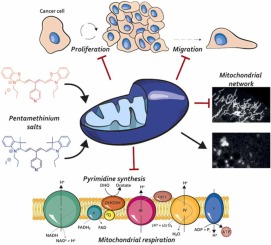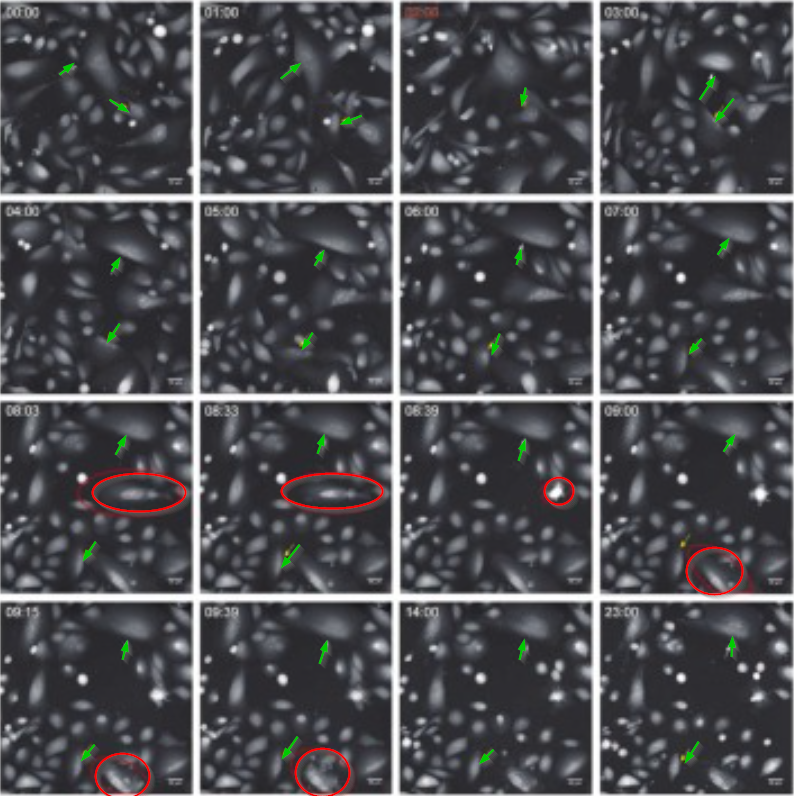This paper investigates the promising anti-cancer properties of two pentamethinium salts (PMS) tested in 5 cell lines. This comprehensive article covers many methods (including tests with 3D spheroids) and we are proud that Telight Q-Phase helped to prove the inhibitory effects on migration and cell growth driven by severe impact of salts on mitochondria functions. One of the most interesting findings is that mitochondria has emerged as promising target for cancer pharmacology.

Highlights:
- Pentamethinium salts target mitochondria and disrupt their key metabolic activities.
- The authors have identified potent inhibitors of DHODH-dependent respiration.
- Disrupting mitochondrial functions suppress migration and invasion of cancer cells.
- By inhibiting DHODH-dependent respiration and regulating mitochondrial function, pentamethinium salts presents novel anti-cancer agents favorably for anti-metastatic applications.
Contribution of quantitative phase imaging
Green arrows indicate the motion of chosen cells and their direction. During the first 3 h of the experiment, cells moved quickly and often changed direction. Within 2 h after the addition of PMS1 (in this case), the cells decelerated and stabilized their direction of movement. After 12 h, cells stopped their movement completely and at the end of the experiment, most of them had round morphology. Two ongoing cell deaths are captured in the field of view, marked with a red ellipse. The time counter is situated in the upper left corner in hh:mm format and the addition of PMS1 is distinguished by red color; 10x magnification.
The original article was written by Leischner Fialová, J. et al 2022.
Other studies
There are other articles focusing on the effect pentamethinium salts and possible therapeutic targets for cancer. Several targets for cancer pharmacology include oncogenic mutations, signal transduction pathways, angiogenesis, immune checkpoint proteins, or apoptosis.
For example, in this article the biological activity of pentamethinium salts was found to be correlated with their affinity for sulfated polysaccharides. Additionally, the presence of side heteroaromates had a significant impact on their cytotoxicity and their ability to selectively target cancer cells.
Researches are constantly exploring those and many others to find the right solution to attack cancer cells. This is one of the main applications for which Q-Phase was designed, as measuring cell dry mass and cell death imaging is one of its core functions.
